
Discovering Derry: The Walled City of History and Culture
Nestled in the northwestern part of Northern Ireland, Derry, also known as Londonderry, is a city rich in history and culture. This enchanting place is renowned for its well-preserved 17th-century city walls, which encircle the old city and offer stunning panoramic views. Walking the walls, you’ll be transported back in time as you encounter historic gates, bastions, and cannons. Derry is also a vibrant hub of arts and music. The city’s calendar is brimming with festivals and events such as the famous Halloween Carnival, which is the largest in Europe. The Guildhall, with its stunning neo-Gothic architecture and beautiful stained glass windows, is a must-visit for its historical significance and aesthetic appeal. Don’t miss the Peace Bridge, a symbol of the city's unity and a great spot for a leisurely stroll. The Museum of Free Derry offers a poignant insight into the city's past, especially the civil rights era. For those who enjoy nature, a visit to the nearby Sperrin Mountains provides ample opportunities for hiking and exploring the scenic Northern Ireland countryside.
Local tips in Derry
- Walk the city walls for the best views and a unique historical experience.
- Visit during Halloween to experience Europe's largest Halloween Carnival.
- Take a stroll across the Peace Bridge for stunning views and photo opportunities.
- Stop by the Museum of Free Derry for a deeper understanding of the city's civil rights history.
- Explore the Guildhall to marvel at its architecture and stained glass windows.
- If you love nature, plan a day trip to the Sperrin Mountains for hiking and scenic views.
Discovering Derry: The Walled City of History and Culture
Nestled in the northwestern part of Northern Ireland, Derry, also known as Londonderry, is a city rich in history and culture. This enchanting place is renowned for its well-preserved 17th-century city walls, which encircle the old city and offer stunning panoramic views. Walking the walls, you’ll be transported back in time as you encounter historic gates, bastions, and cannons. Derry is also a vibrant hub of arts and music. The city’s calendar is brimming with festivals and events such as the famous Halloween Carnival, which is the largest in Europe. The Guildhall, with its stunning neo-Gothic architecture and beautiful stained glass windows, is a must-visit for its historical significance and aesthetic appeal. Don’t miss the Peace Bridge, a symbol of the city's unity and a great spot for a leisurely stroll. The Museum of Free Derry offers a poignant insight into the city's past, especially the civil rights era. For those who enjoy nature, a visit to the nearby Sperrin Mountains provides ample opportunities for hiking and exploring the scenic Northern Ireland countryside.
When is the best time to go to Derry?
Iconic landmarks you can’t miss
The Derry Walls
Walk the 17th-century ramparts of Ireland’s only complete walled city, where centuries of history, sieges and resilience unfold with every step around the Maiden City.
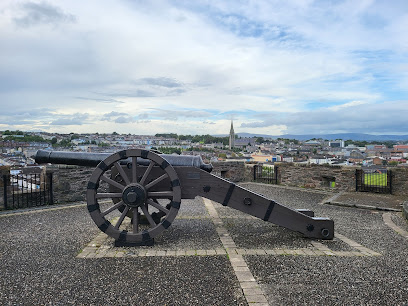
Free Derry Corner
A gable wall bearing an iconic slogan that became a global symbol of resistance and civil rights.
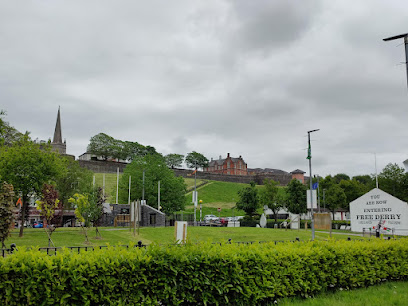
The Peace Bridge
A striking cycle and footbridge over the River Foyle, symbolising peace and unity in Derry~Londonderry, with sweeping views of the Walled City and Ebrington Square.
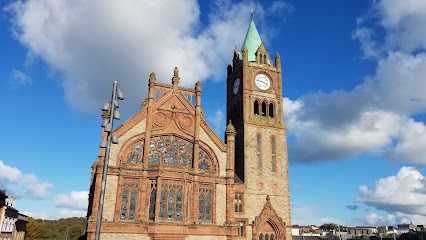
Amazing Grace Viewing Point
Where a storm‑tossed sailor found grace and penned one of the world’s most beloved hymns, overlooking the waters of Lough Swilly in Buncrana.
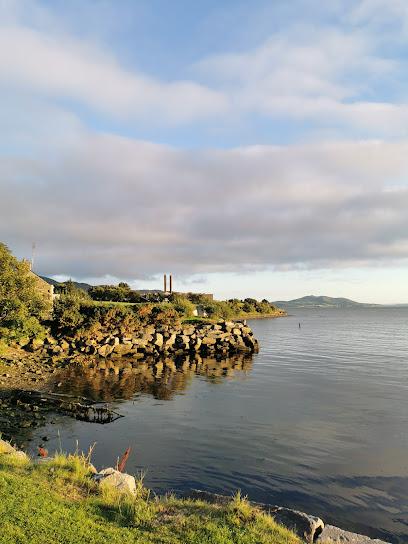
Bloody Sunday Monument
A solemn granite monument in Derry’s Bogside honoring the 14 victims of Bloody Sunday, symbolizing resilience and the quest for justice.
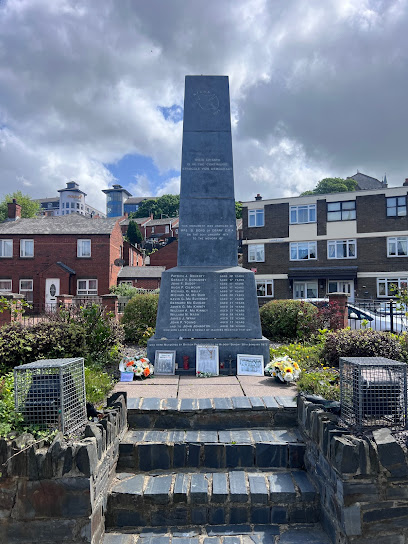
Craigavon Bridge
Explore Derry’s iconic double-decker Craigavon Bridge, a historic engineering marvel spanning the River Foyle with panoramic city views.
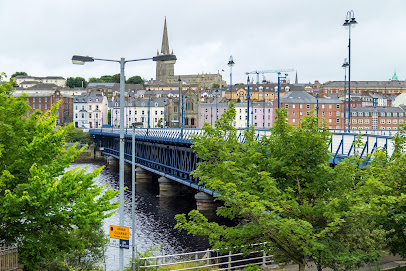
St Augustine's Church of Ireland
A 1,500-year-old sanctuary where Saint Columba's monastery still echoes through the walls of Londonderry.
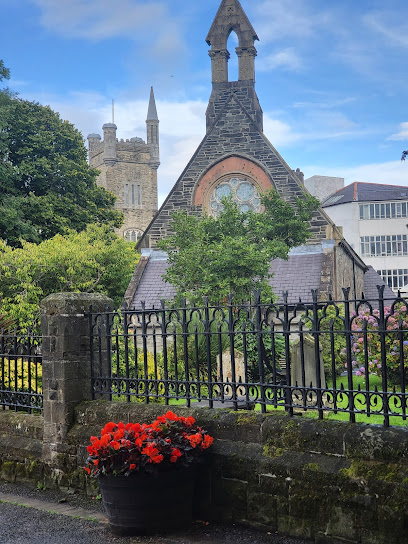
Cornerstone City Church
A vibrant community in Londonderry offering worship, outreach, and hope through faith and compassionate service.
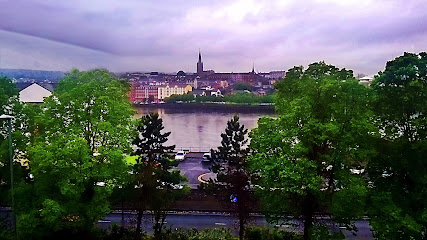
War Memorial
A solemn tribute to the fallen, standing at the heart of Derry's historic walled city since 1927.
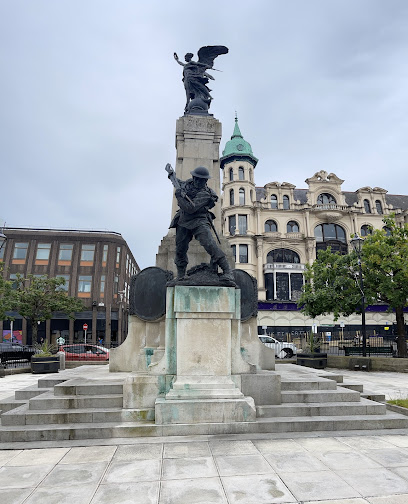
Double Bastion
Historic fortress bastion on Derry’s city walls, home to the legendary Roaring Meg cannon and panoramic views over the Bogside.
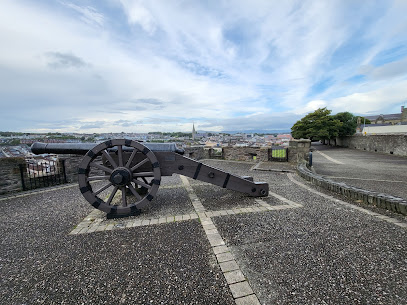
The Clock Tower
Historic Clock Tower at Ebrington Square, a timeless symbol of Londonderry’s military heritage and vibrant city life.
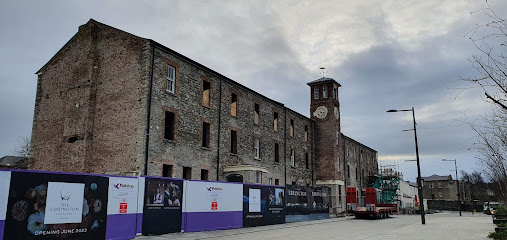
Magazine Gate Derry City Walls
Explore Magazine Gate, the newest historic entrance to Derry’s iconic walled city, offering riverfront access and rich 19th-century heritage.
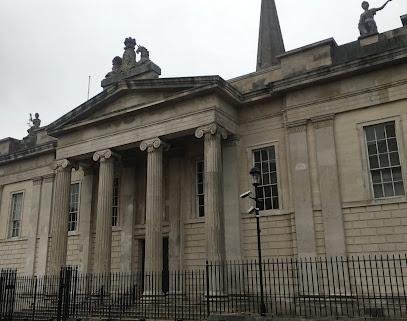
Heritage Tower Museum
Explore Derry’s vibrant history and culture with immersive exhibits and panoramic city views at the award-winning Tower Museum.
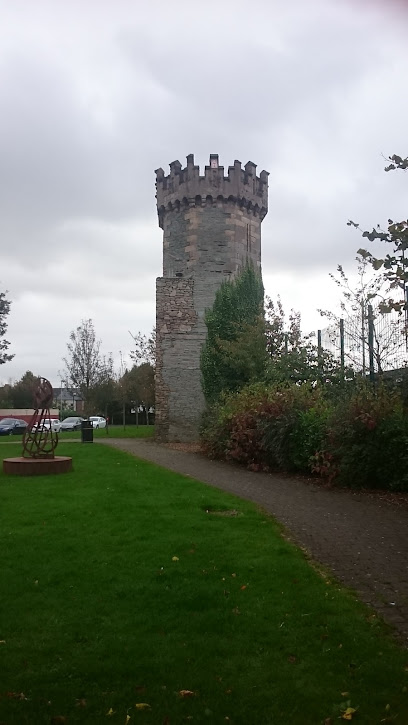
Ferryquay Gate Derry City Walls
Step through the gate that started the Siege of Derry and walk the ramparts of one of Europe’s finest walled cities.
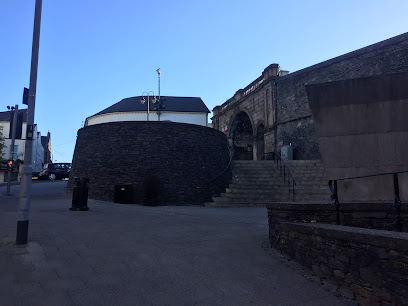
Derry Round Towere
Medieval bell tower from the 13th-14th century—Derry's only surviving medieval structure and symbol of monastic power.
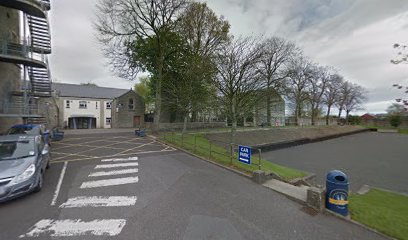
Unmissable attractions to see
Glenveagh National Park
Explore rugged mountains, a Victorian castle, and enchanting gardens in Ireland’s wild Glenveagh National Park.

Foyleside Shopping Centre
Derry’s premier shopping destination with over 50 stores, family amenities, and stunning riverside dining in the heart of the walled city.
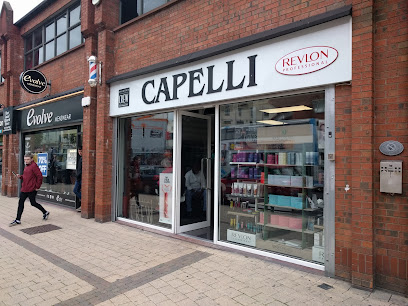
Fanad Head Lighthouse
Historic Fanad Head Lighthouse stands proudly on Donegal’s wild coast, offering panoramic Atlantic views, rich maritime history, and immersive tours.

Richmond Shopping Centre
Derry’s main indoor shopping hub, with big brands, cafés, and family events in the heart of the city.
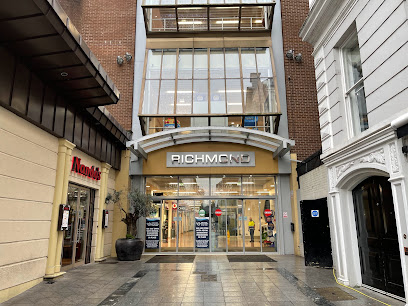
Fort Dunree
Explore Fort Dunree’s rich military history and stunning coastal wildlife on Ireland’s scenic Inishowen Peninsula.
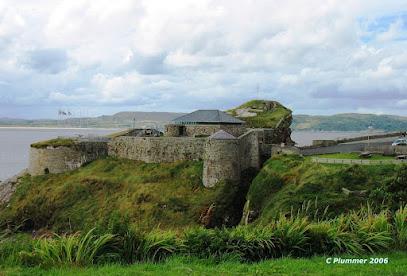
The Peace Bridge
A stunning pedestrian bridge in Derry symbolizing peace and unity across the River Foyle, linking divided communities with elegant design.
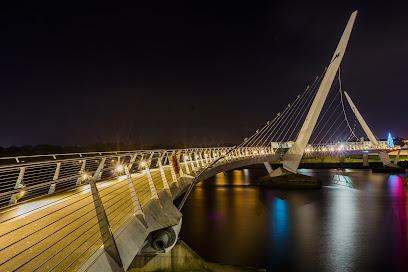
St Columb's Park
Seventy acres of riverside heritage, history, and green space where the city meets nature across the Peace Bridge.
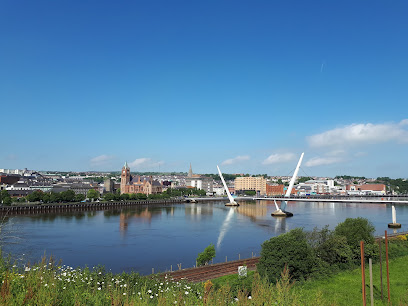
Doagh Famine Village
Step back in time at Doagh Famine Village, where Ireland’s Great Famine and cultural heritage come alive through immersive guided tours and authentic exhibits.
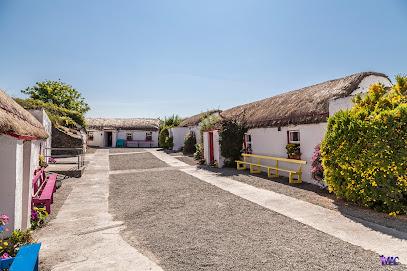
Glenveagh Castle
Explore the romantic Glenveagh Castle and its exquisite gardens nestled in the wild beauty of County Donegal’s Glenveagh National Park.
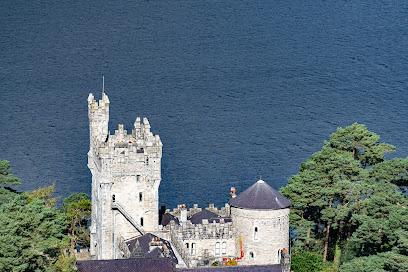
Quayside Shopping Centre
A vibrant shopping and leisure hub in Londonderry with diverse stores, cinema, and convenient facilities beside the Peace Bridge.
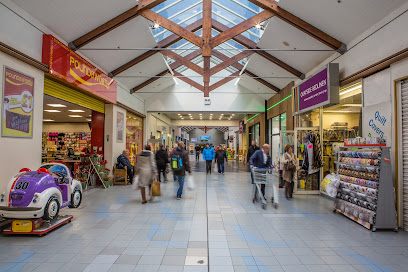
Derry Girls Mural
Snap a selfie with the iconic Derry Girls cast on this vibrant city-centre mural, a must-see for fans of the hit comedy series in Derry/Londonderry.
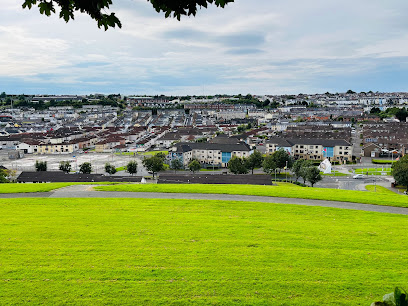
Museum of Free Derry
A powerful archive of civil rights struggle and community resilience in Northern Ireland's Bogside.
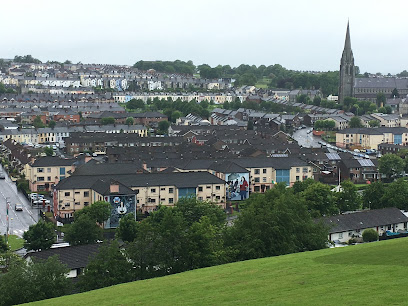
Oakfield Park
Explore award-winning gardens, Ireland’s longest miniature railway, and family-friendly adventures in the scenic Oakfield Park, Donegal.
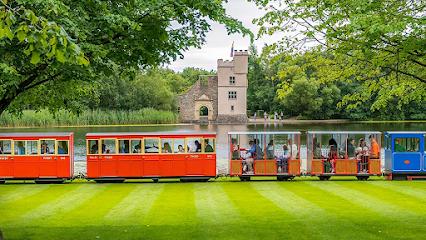
West Strand Beach
A Blue Flag beach in Portrush with golden sands, vibrant promenade, and ancient peat heritage on Northern Ireland’s stunning Causeway Coast.
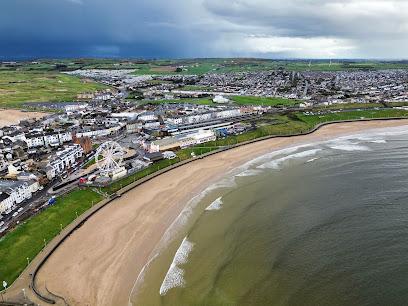
Brooke Park Derry
A beautifully restored Victorian park in Derry offering historic charm, panoramic city views, and family-friendly green spaces since 1901.
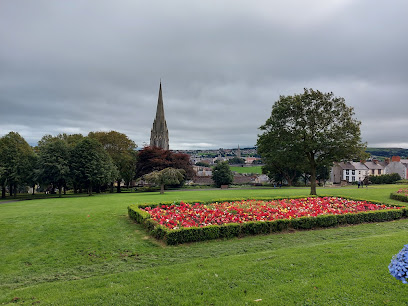
Essential places to dine
Quaywest Wine Bar & Restaurant
Riverside dining in Derry offering modern Irish and international flavors with a warm, lively atmosphere and excellent wine selection.
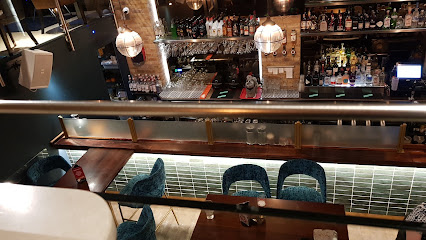
Fitzroy's
Theatrical bistro in Londonderry's city centre with inclusive cuisine and thoughtful service.
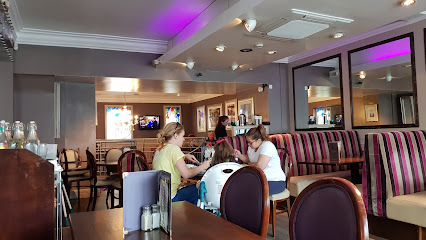
Mandarin Palace
A vibrant fusion of Chinese and Asian flavors with stylish decor and a lively cocktail bar on Londonderry’s Queens Quay.
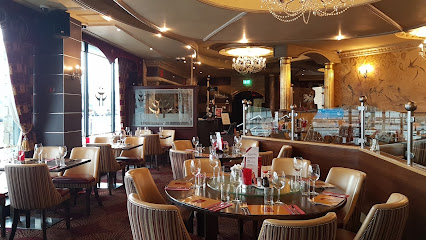
Guapo Fresh Mexican
Fresh, flavorful Mexican cuisine with customizable heat levels served in a casual riverside setting in Londonderry.
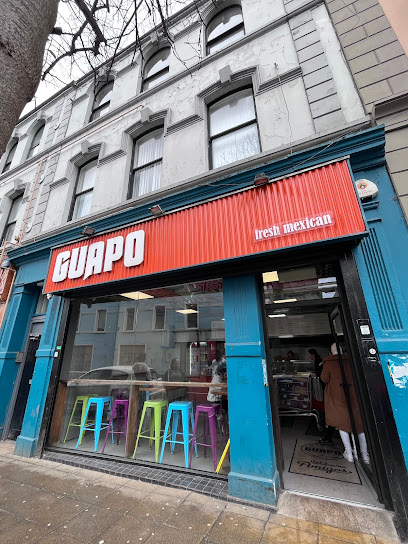
The Exchange
Modern European dining with a welcoming atmosphere on Londonderry’s historic Queens Quay waterfront.
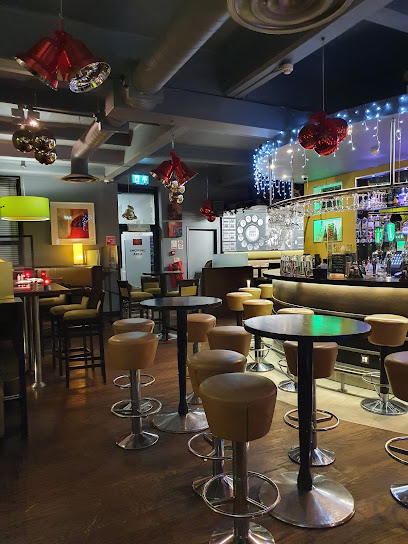
Badgers Bar and Restaurant
Lively and welcoming pub-restaurant in the heart of Londonderry, famed for local flavors and the iconic Derry Girls mural.
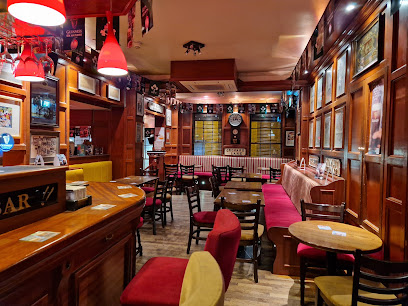
Pyke 'N' Pommes (POD)
Riverside street food delight in Londonderry, serving bold burgers and tacos from a unique shipping container kitchen and double-decker bus.
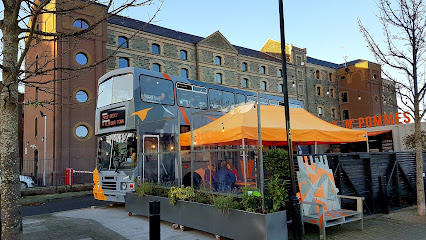
Link 47 Bar & Restaurant
Londonderry’s vibrant bar and restaurant offering modern dining, local craft beers, and a welcoming atmosphere in Crescent Link Retail Park.
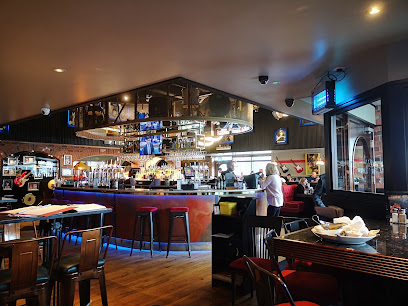
Mama Masala
Experience the vibrant fusion of Indian and Italian flavors at Mama Masala, a lively and welcoming restaurant in Londonderry’s Queens Quay.
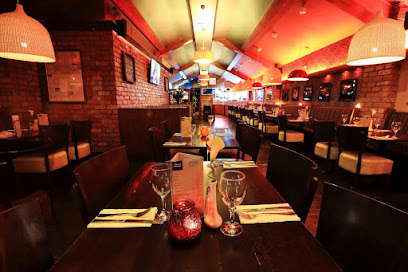
Timber Quay Restaurant Derry
Modern European dining by the River Foyle with fresh flavors, friendly service, and a stylish, relaxed atmosphere in Londonderry.
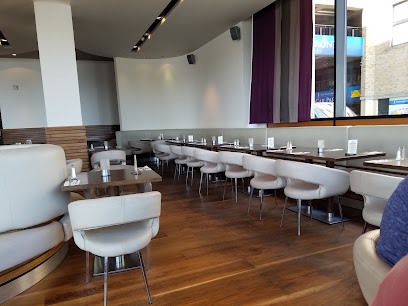
Browns In Town
Modern Irish cuisine with a creative twist in a warm, casual setting on Londonderry’s Strand Road.
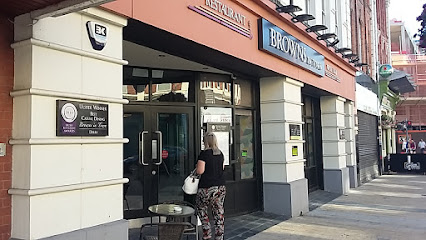
Guildhall Taphouse
Historic gastropub in Londonderry’s heart offering craft beers, hearty food, and a lively atmosphere in a 19th-century merchant building.
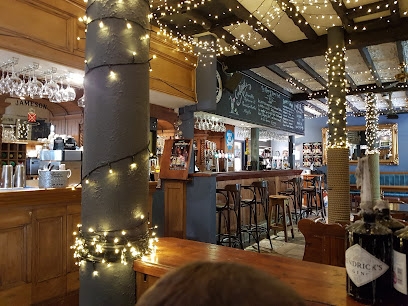
SPAGHETTI JUNCTION
Experience authentic Italian flavors and lively evenings at Spaghetti Junction, Londonderry’s beloved Mediterranean restaurant.
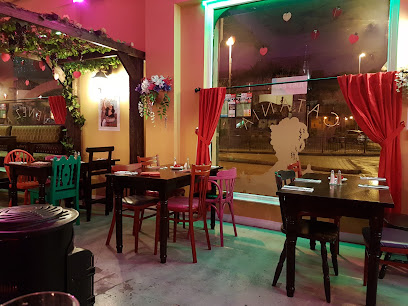
The Old Docks Bar & Grill
A welcoming waterfront restaurant and bar in Londonderry offering hearty dishes, friendly service, and a relaxed atmosphere on Queens Quay.
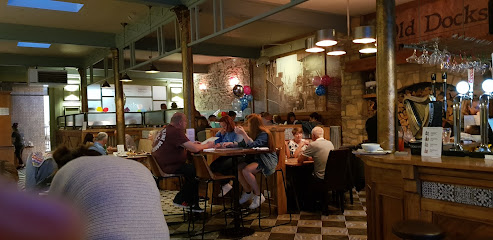
The Sooty Olive
A stylish, locally inspired restaurant in Londonderry offering fresh, creative dishes in a relaxed, modern setting.
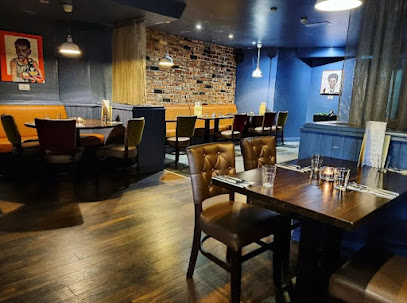
Markets, malls and hidden boutiques
The Range, Derry
A versatile homewares and lifestyle store in Derry offering furniture, garden supplies, pet care, and more with convenient hours and moderate prices.
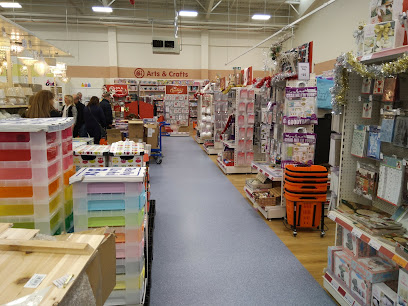
Lisnagelvin Shopping Centre
A vibrant and accessible shopping centre in Londonderry’s Waterside, offering diverse retail and dining options with excellent facilities.
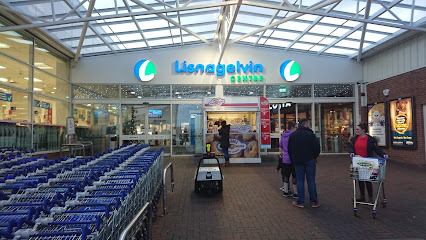
Dunnes Stores
Discover quality fashion and stylish homeware at Dunnes Stores, a trusted Irish retail icon in Londonderry’s vibrant Foyleside Shopping Centre.
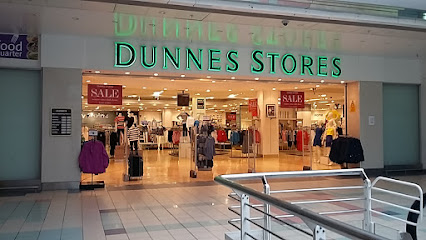
Matalan
Affordable fashion and homeware for every family member in the heart of Londonderry.
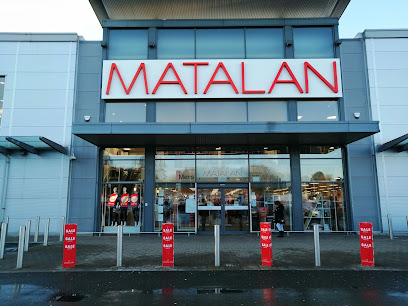
The Yellow Yard
Discover vintage treasures, rare vinyl, and unique books in Londonderry’s vibrant and welcoming Yellow Yard market.
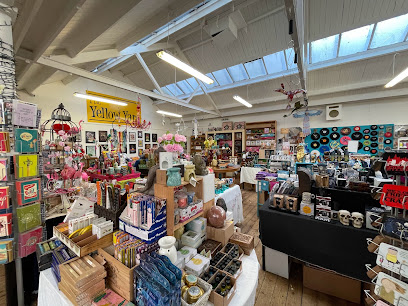
Angry Cherry
Londonderry's premier pop culture destination for comics, gaming, anime, and entertainment collectibles since 2013.
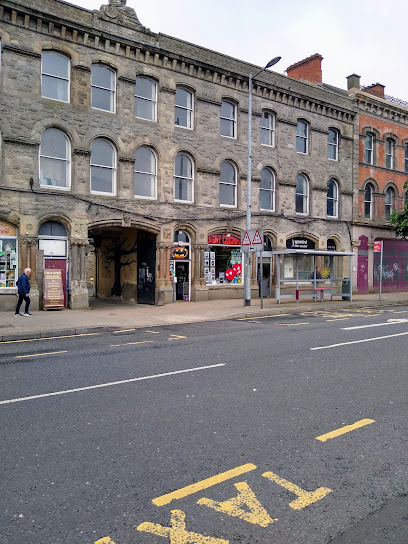
River Island
Trendy, accessible fashion for all ages in the heart of Londonderry’s bustling Foyleside Shopping Centre.

Next
Next at Foyleside offers stylish fashion and homeware in Londonderry’s premier shopping centre with excellent amenities and a lively atmosphere.
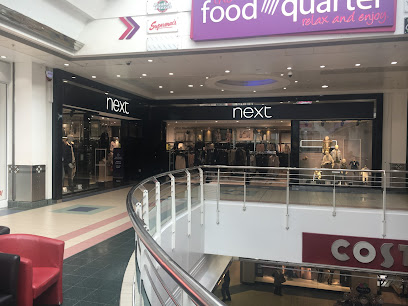
Mermaid Cove
Discover handcrafted bath bombs, natural cosmetics, and exclusive home fragrances at Mermaid Cove in historic Derry’s Richmond Centre.
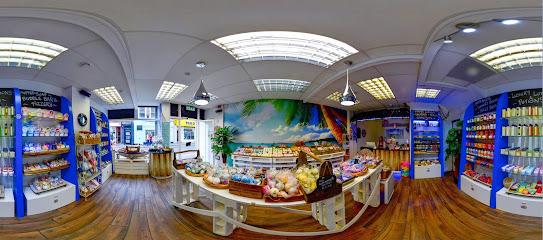
Monsoon & Accessorize
Discover stylish ladies' fashion and unique accessories at Monsoon & Accessorize, nestled in Londonderry’s vibrant Foyleside Shopping Centre.
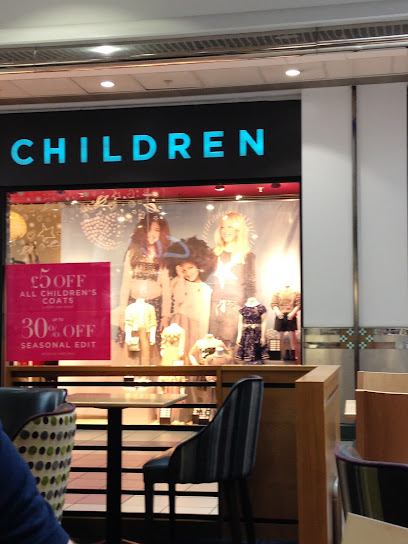
The Whatnot
A charming antique shop in Derry~Londonderry, packed with vintage furniture, curiosities, and collectibles from bygone eras.
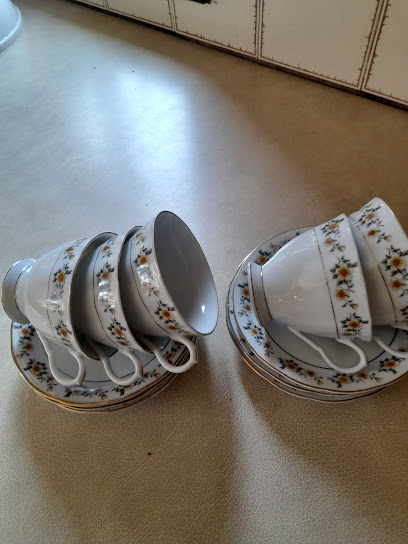
House of Fraser
Discover fashion, beauty, and homewares at Londonderry’s premier House of Fraser in the vibrant Foyleside Centre.

Craft Village
Discover Derry’s charming Craft Village: a historic artisan quarter blending local crafts, cozy cafes, and timeless Irish heritage in a picturesque setting.
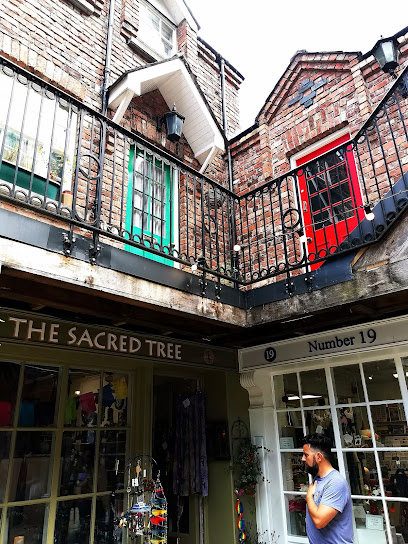
Kular Fashion
Derry’s trusted family-run boutique for premium men’s designerwear, footwear, and accessories since 1977.
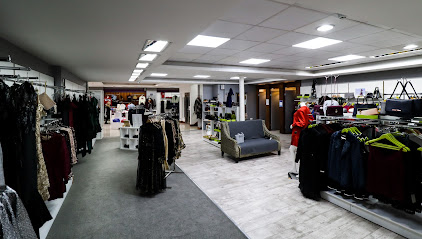
The Irish Shop
Discover authentic Irish crafts and heritage treasures in the heart of Derry’s charming Craft Village.
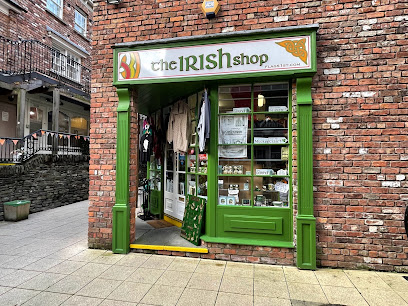
Essential bars & hidden hideouts
Peadar O'Donnell's
Experience authentic Irish music and warm hospitality at Peadar O'Donnell's, Derry's iconic pub with three lively bars and nightly live performances.
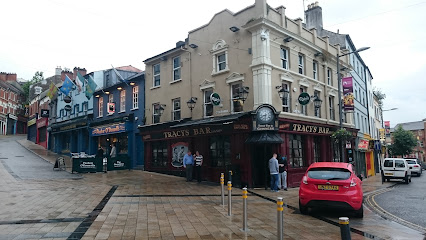
Blackbird
Blackbird is a lively Londonderry pub offering fine brews, a welcoming atmosphere, and a growing kitchen menu from midday to late night.
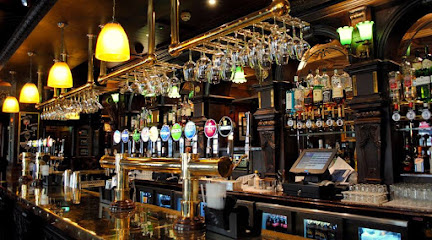
Sandinos
Experience Londonderry’s dynamic live music and vibrant social scene at Sandinos, a beloved bar and café on historic Water Street.
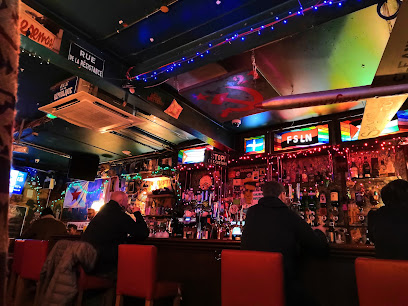
Guildhall Taphouse
Historic gastropub in Derry’s heart serving craft beers, cocktails, and live music in a vibrant, welcoming atmosphere.
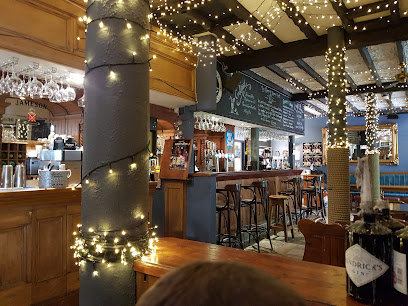
BRICKWORK BAR
Londonderry's vibrant bar and restaurant where live music, craft cocktails, and genuine hospitality create unforgettable nights.
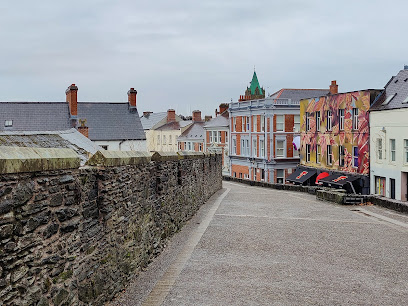
The Gate Bistro & Cocktail Bar
Experience the perfect blend of contemporary cuisine and innovative cocktails at The Gate Bistro & Cocktail Bar in Londonderry.
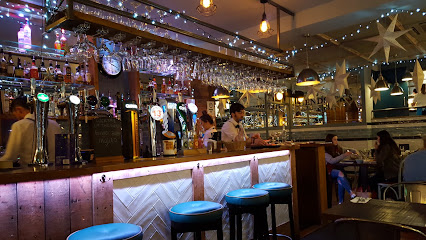
The Rocking Chair
A lively gastropub and live music bar in Londonderry offering hearty food, refreshing drinks, and a vibrant social atmosphere.
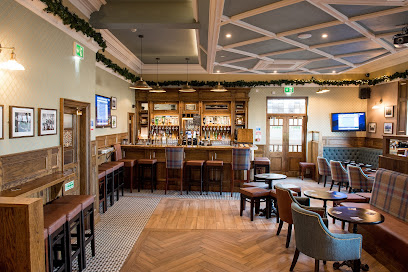
Tracy's Bar
Experience authentic Irish hospitality with lively music, great pints, and a welcoming atmosphere in the heart of Londonderry.
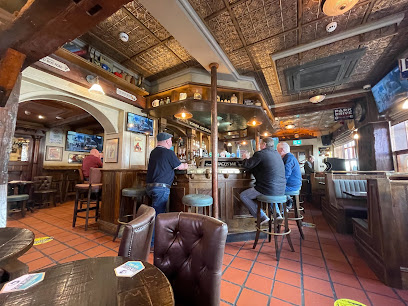
Jack's Bar
Experience authentic Northern Irish hospitality and hearty pub fare in the cozy and lively Jack's Bar at Londonderry's Little James Street.
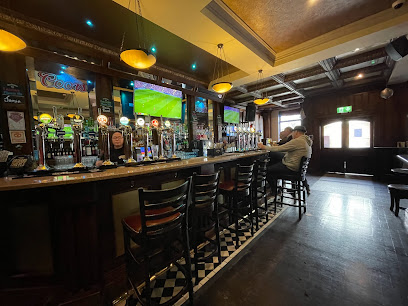
The Thirsty Goat Derry
A lively bar and beer garden in Londonderry offering traditional Irish fare, craft beers, and live music seven nights a week.
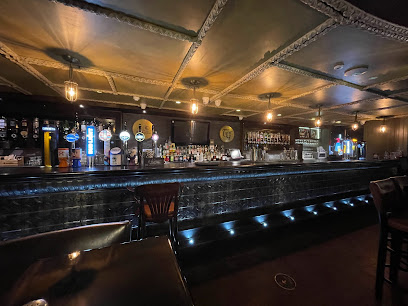
Grand Central Bar
A lively and affordable local pub on Strand Road, Grand Central Bar offers a warm atmosphere and friendly service in the heart of Londonderry.
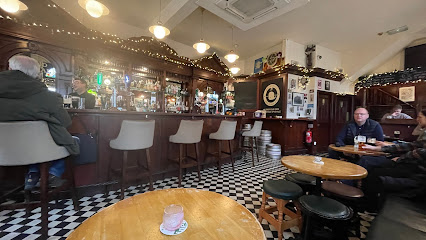
Tinney's Bar & The Shirt Factory
Historic family-owned Irish pub in Londonderry famed for legendary Guinness, lively local atmosphere, and shirt factory heritage.
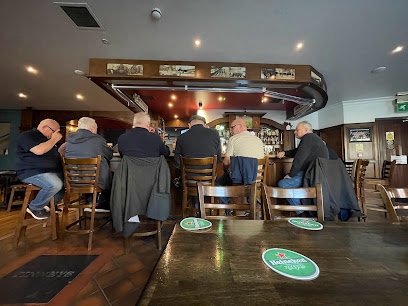
Abercorn Bar & Off Sales
Cozy and affordable local pub in Londonderry with a friendly vibe, live sports, and off-sales convenience.
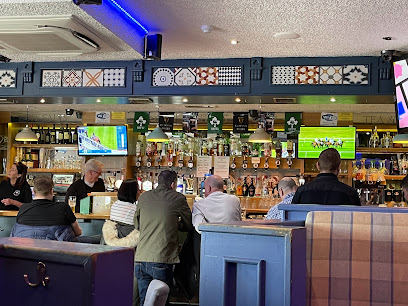
The Park Bar
A historic family-run pub in Londonderry renowned for its warm hospitality, excellent Guinness, and vibrant Irish cultural nights.
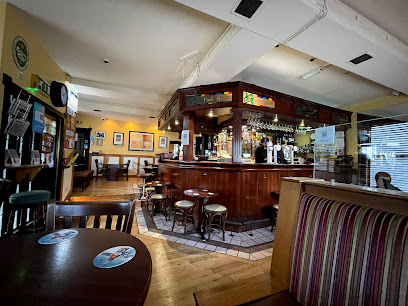
Local Phrases
-
- HelloHiya
[HI-ya] - GoodbyeBye
[BYE] - YesAye
[AYE] - NoNaw
[NAW] - Please/You're welcomePlease/No bother
[PLEEZ/NO BOD-er] - Thank youCheers
[CHEERS] - Excuse me/SorrySorry
[SOR-ee] - How are you?How's it goin'?
[HOWZ it GO-in] - Fine. And you?Grand. And yourself?
[GRAND. And yur-self?] - Do you speak English?Do ye speak English?
[DO ye SPEEK ING-lish] - I don't understandI don't get ye
[I dont GET ye]
- HelloHiya
-
- I'd like to see the menu, pleaseCan I have a look at the menu, please
[CAN I HAV a look at the MENU, please] - I don't eat meatI don't eat meat
[I dont EAT meet] - Cheers!Sláinte!
[SLAN-cha] - I would like to pay, pleaseI'll pay now, thanks
[ILL pay now, thanks]
- I'd like to see the menu, pleaseCan I have a look at the menu, please
-
- Help!Help!
[Help!] - Go away!Away wi' ye!
[Away wi' ye!] - Call the Police!Ring the peelers!
[Ring the PEEL-ers] - Call a doctor!Get the doctor!
[Get the DOCK-ter] - I'm lostI'm all turned around
[I'm all turned a-ROUND] - I'm illI'm not well
[I'm not WELL]
- Help!Help!
-
- I'd like to buy...I'd like to get...
[I'd like to GET] - I'm just lookingI'm just browsing
[I'm just BRO-sing] - How much is it?How much does it cost?
[How much does it COST] - That's too expensiveThat's dear
[That's DEER] - Can you lower the price?Can ye do it any cheaper?
[Can ye do it any CHEE-per]
- I'd like to buy...I'd like to get...
-
- What time is it?What's the time?
[What's the TIME] - It's one o'clockIt's one o'clock
[It's one o'clock] - Half past (10)Half ten
[Half TEN] - MorningMorning
[Morning] - AfternoonAfternoon
[Afternoon] - EveningEvening
[Evening] - YesterdayYesterday
[Yesterday] - TodayToday
[Today] - TomorrowTomorrow
[Tomorrow] - 1One
[One] - 2Two
[Two] - 3Three
[Three] - 4Four
[Four] - 5Five
[Five] - 6Six
[Six] - 7Seven
[Seven] - 8Eight
[Eight] - 9Nine
[Nine] - 10Ten
[Ten]
- What time is it?What's the time?
-
- Where's a/the...?Where's the...?
[Where's the] - What's the address?What's the address?
[What's the ADDRESS] - Can you show me (on the map)?Can you show me (on the map)?
[Can you show me (on the map)] - When's the next (bus)?When's the next (bus)?
[When's the next (bus)] - A ticket (to ....)A ticket (to ....)
[A ticket (to ....)]
- Where's a/the...?Where's the...?
History of Derry
-
Derry, also known as Londonderry, has its origins in the 6th century when the holy man Colmcille (St. Columba) founded a monastery on the site. This early ecclesiastical settlement became a center of Christian learning and culture, influencing the region's development through the centuries.
-
In the early 17th century, Derry underwent significant changes due to the Plantation of Ulster, an organized colonization of the province by settlers from Britain. In 1613, the city was granted a Royal Charter and renamed Londonderry. The walls of the city were built during this period, and they remain one of the most intact city walls in Europe today.
-
One of the most pivotal events in Derry's history is the Siege of 1688-1689, where Protestant defenders held out against the forces of King James II for 105 days. The siege ended in relief for the city's inhabitants and remains a key moment commemorated annually by the Apprentice Boys of Derry.
-
The 19th century saw Derry expand as a major port with industries such as shirt-making gaining prominence. The arrival of the railway in 1850 further boosted the city's economic growth, connecting Derry to other parts of Ireland and Britain.
-
Derry played a significant role during the period known as The Troubles (late 1960s to 1998). The city witnessed civil rights marches, notably the Bloody Sunday incident in 1972 when British soldiers shot 26 unarmed civilians during a protest. The Troubles deeply affected the city's social and political landscape.
-
The signing of the Good Friday Agreement in 1998 marked a turning point for Derry, ushering in a period of peace and reconciliation. Today, Derry is a vibrant city known for its cultural festivals, such as the Foyle Maritime Festival and the Halloween celebrations, which are among the largest in Europe.
Derry Essentials
-
Derry (also known as Londonderry) is accessible by several means of transportation. The nearest airport is City of Derry Airport (LDY), which is approximately 11 kilometers from the city center. Flights from major UK cities, like London and Liverpool, frequently land here. Alternatively, Belfast International Airport (BFS) and George Best Belfast City Airport (BHD) are about 100 kilometers away and offer more international connections. From Belfast, you can reach Derry by train or bus, with journeys typically taking around 2 hours. For those driving, the A6 road connects Derry to Belfast.
-
Derry has an efficient public transport system, including buses operated by Translink. The city's main bus terminal is at Foyle Street, where you can find routes covering various parts of the city and surrounding areas. Taxis are also readily available and can be hailed on the street or booked via phone or app. The historic city center is compact, making it easy to explore on foot. For a more scenic experience, consider renting a bicycle. Car rental services are available for those planning to explore the broader region.
-
The official currency in Derry is the British Pound Sterling (GBP). Credit and debit cards are widely accepted in hotels, restaurants, and shops. ATMs are plentiful, particularly in the city center. It is advisable to carry some cash for small purchases, especially in markets or smaller establishments. Contactless payments are increasingly common, and mobile payment options like Apple Pay and Google Wallet are also accepted.
-
Derry is generally a safe city for tourists, but like any urban area, it is wise to take standard precautions. Avoid walking alone at night in unfamiliar areas and keep an eye on your belongings in crowded places. Some areas, such as the Bogside, have historically been associated with political unrest. While these areas are generally safe, it is advisable to be cautious and respectful of local sentiments. Always stay aware of your surroundings and avoid displaying valuable items openly.
-
In case of an emergency, dial 999 for police, fire, or medical assistance. The Altnagelvin Area Hospital provides comprehensive medical services and is located a short drive from the city center. Pharmacies are available throughout the city for minor health issues. It is highly recommended to have travel insurance that covers medical emergencies. For non-urgent medical advice, you can call the NHS 111 service.
-
Fashion: Do wear comfortable walking shoes, as Derry's historic areas often have cobblestone streets. Avoid overly casual clothing when dining in upscale restaurants. Religion: Do respect religious sites by dressing modestly and remaining quiet. Avoid discussing controversial religious topics. Public Transport: Do be polite and offer your seat to elderly passengers. Don’t eat or drink on public transport. Greetings: Do greet people with a friendly 'Hello' or 'Hi'. A handshake is customary in formal settings. Eating & Drinking: Do try local specialties like soda bread and Irish stew. Don’t forget to tip around 10-15% in restaurants if service is not included.
-
To experience Derry like a local, consider walking the historic city walls, which offer fantastic views and insights into the city’s past. Visit the Craft Village to find unique handmade items and local art. Enjoy a pint at a traditional pub while listening to live Irish music. Engage with locals, who are often eager to share stories and recommendations. Don’t miss the Halloween celebrations, as Derry is known for having one of the best Halloween festivals in the world.
Trending Landmark in Derry
-
The Derry Walls
-
Free Derry Corner
-
The Peace Bridge
-
Amazing Grace Viewing Point
-
Bloody Sunday Monument
-
Craigavon Bridge
-
St Augustine's Church of Ireland
-
Cornerstone City Church
-
War Memorial
-
Double Bastion
-
The Clock Tower
-
Magazine Gate Derry City Walls
-
Heritage Tower Museum
-
Ferryquay Gate Derry City Walls
-
Derry Round Towere
Nearby Cities to Derry
-
Things To Do in Belfast
-
Things To Do in Sligo
-
Things To Do in Drogheda
-
Things To Do in Athlone
-
Things To Do in Peel
-
Things To Do in Kirk Michael
-
Things To Do in Port Erin
-
Things To Do in Port St Mary
-
Things To Do in Westport
-
Things To Do in Dublin
-
Things To Do in Ballasalla
-
Things To Do in Castletown
-
Things To Do in Ramsey
-
Things To Do in Douglas
-
Things To Do in Laxey










